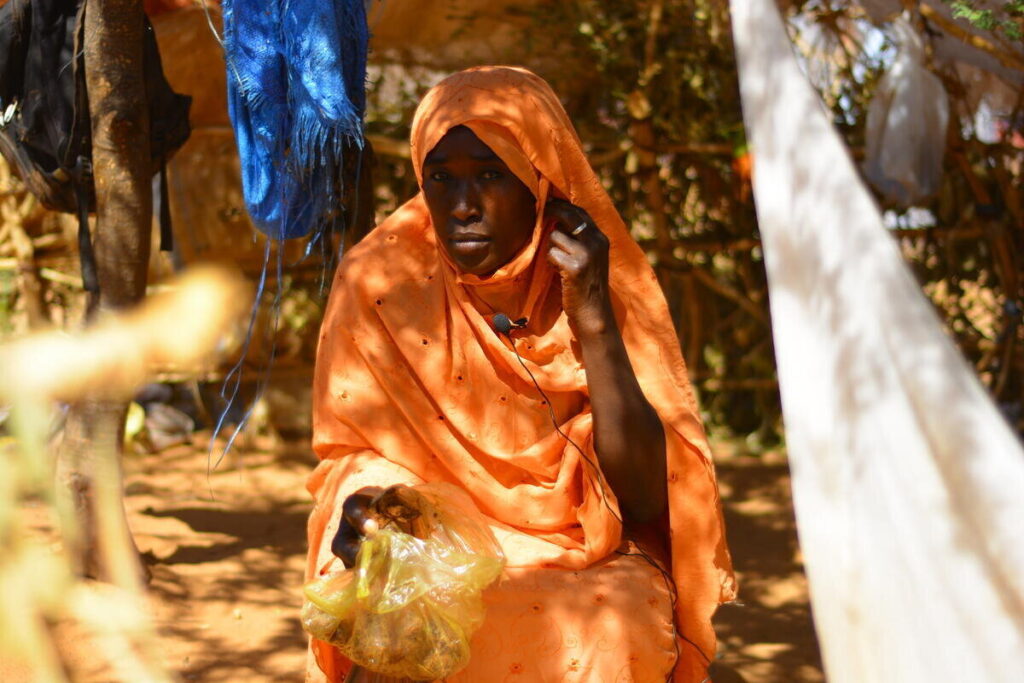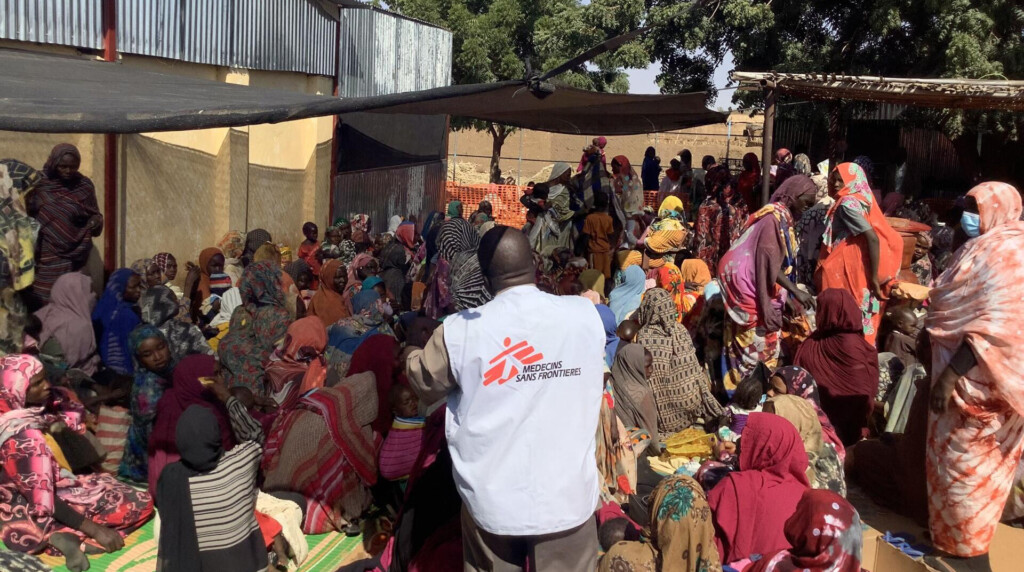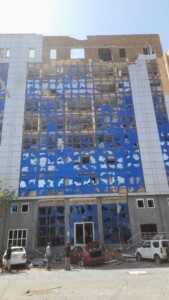Humanitarian agencies WFP, MSF suspend ops amid heavy North Darfur flighting

A displaced woman in Zamzam Camp, El Fasher (File photo: WFP/Mohamed Galal)
Intense fighting in Zamzam camp in the North Darfur capital El Fasher has forced the UN World Food Programme (WFP) to temporarily pause the distribution of life-saving food and nutrition assistance in the famine-hit camp for displaced people. Over the past two weeks escalating violence left WFP’s partners with no choice but to evacuate staff for safety, the organisation laments in a statement today. This follows a similar announcement by Médecins Sans Frontières (MSF) on Monday, who say: “The current escalation of attacks and fighting in and around Zamzam camp for displaced people near El Fasher in North Darfur, Sudan, is making it impossible for Médecins Sans Frontières (MSF) to continue providing medical assistance in such dangerous conditions. Despite widespread starvation and immense humanitarian needs, we have no choice but to take the decision to suspend all our activities in the camp, including the MSF field hospital.”
“Without immediate assistance, thousands of desperate families in Zamzam could starve in the coming weeks,” said WFP Laurent Bukera, Regional Director for Eastern Africa and acting Country Director for Sudan. “We must resume the delivery of life-saving aid in and around Zamzam safely, quickly and at scale. For that the fighting must stop, and humanitarian organizations must be granted security guarantees.”
In February, WFP and its partners only managed to provide 60,000 people with food vouchers, when heavy shelling forced the pause of aid operations earlier this month.
The food vouchers allow families to purchase essential food supplies, such as cereals, pulses, oil and salt, directly from local markets which WFP helps to keep stocked through its local private sector retail network.
The recent violence has left Zamzam’s Central Market destroyed by shelling, pushing residents of the camp – estimated to be between 500,000 and one million people – further away from accessing essential food and supplies.
WFP and other partners have been working to deliver food and nutrition assistance to displaced people in and around North Darfur’s Zamzam camp. These people will not receive support until WFP is able to safely resume activities and get humanitarian assistance to the area.
Famine was confirmed in Zamzam last August. Since then, WFP has managed to transport just one convoy of humanitarian supplies into the camp despite repeated attempts. Poor road conditions during the rainy season, purposeful obstruction by the Rapid Support Forces, and fighting between the Rapid Support Forces and the SAF-affiliated joint forces along the route to Zamzam has frustrated WFP’s many attempts.
The closure of the Adre border in the first half of 2024 also prevented WFP from stockpiling food in Zamzam, which would have meant consistent support through the latter part of the year.
“We will leave no stone unturned in our efforts to assist millions of people facing famine or at risk across Sudan. We are trying every possible way to get vital aid into the hands of people whose lives hang in the balance,” Bukera said.
To provide assistance when insecurity prevents access, WFP launched an online self-registration link for digital cash transfers in North Darfur. This initiative helps ensure that people receive critically necessary assistance when the agency must suspend its operations until conditions permit the safe passage of humanitarian personnel and convoys.
WFP has made breakthroughs in delivering support to hard-to-reach areas across Sudan with areas of Gezira State and Khartoum reached for the first time since the war started.
In 2024, two out of every three people in famine or risk of famine areas received WFP assistance. However, access remains sporadic, and two million people in 27 locations across Sudan are currently experiencing, or on the brink of, famine. Regular, monthly deliveries to starving communities are the only way to push back the famine in Sudan, the WFP warns.

MSF
The current escalation of attacks and fighting in and around Zamzam camp is making it impossible for Médecins Sans Frontières (MSF) to continue providing medical assistance in such dangerous conditions, the organisation announced on Monday. Despite widespread starvation and immense humanitarian needs, we have no choice but to take the decision to suspend all our activities in the camp, including the MSF field hospital.
In the first three weeks of February, MSF says its teams in Zamzam received 139 wounded patients in their field hospital, mostly suffering from gunshot and shrapnel injuries. Designed to help tackle the massive malnutrition crisis unfolding in the camp, which was declared as undergoing famine conditions by the Integrated Food Security Phase Classification last year, the MSF facility cannot provide trauma surgery for people in critical conditions.
“Eleven patients died while in the MSF hospital, five of them children, because we could neither treat them properly nor refer them to Saudi hospital, the only facility with surgical capacity in nearby El Fasher,” says Yahya Kalilah, MSF’s head of mission in Sudan. “In January and December, two of our ambulances carrying patients from the camp to El Fasher were shot at. Now it’s even more dangerous and as a result, many people, including patients requiring trauma surgery or emergency caesarean sections, are trapped in Zamzam,” MSF says.











 and then
and then